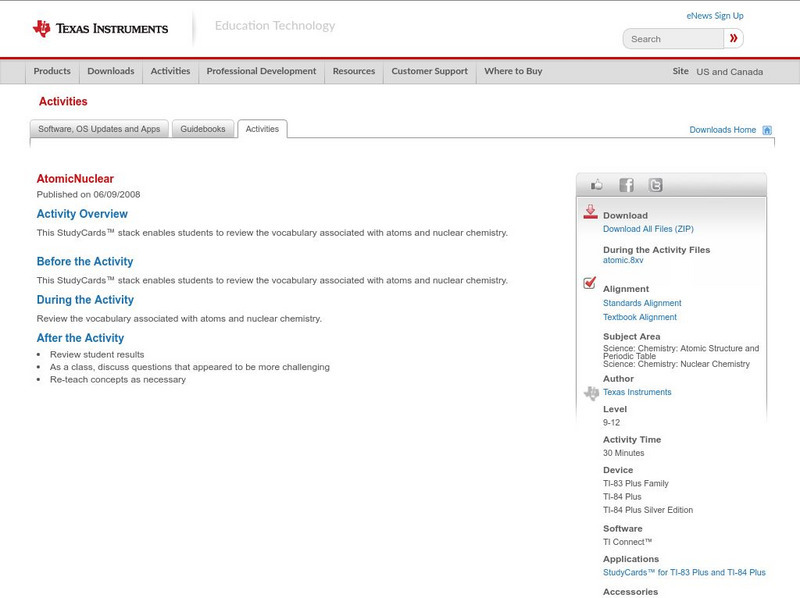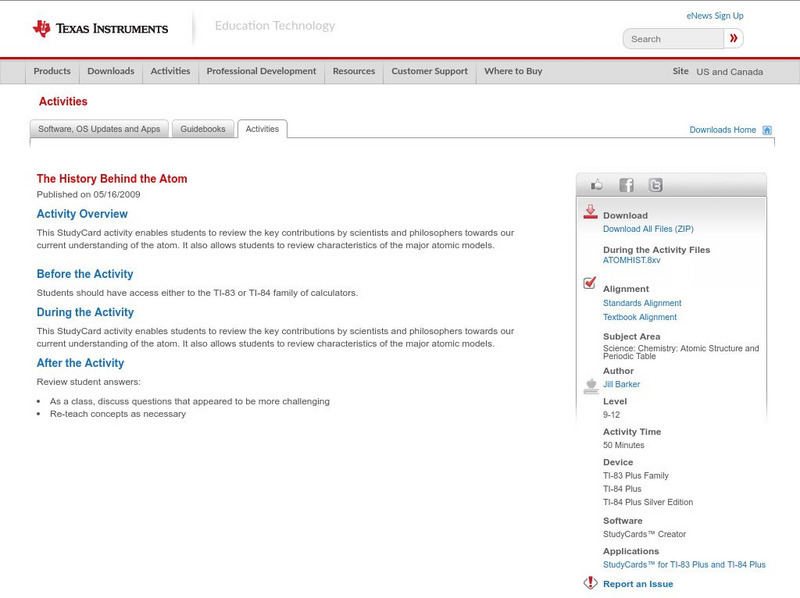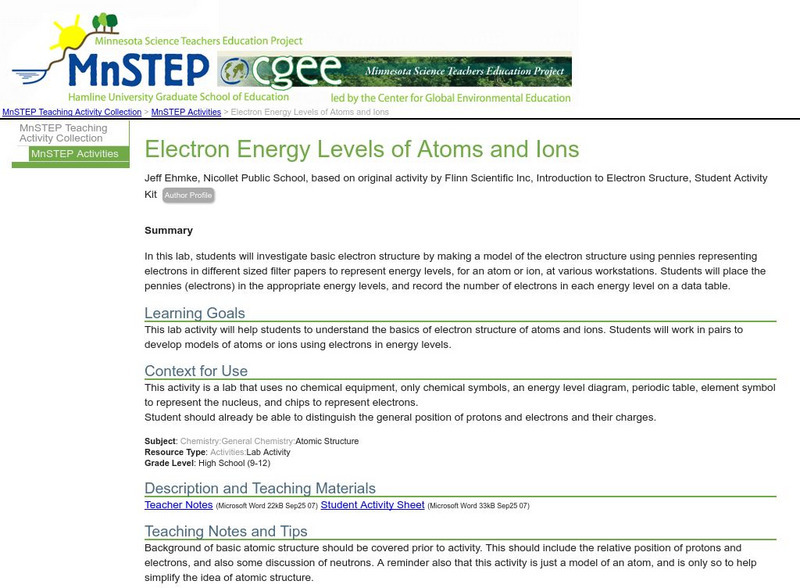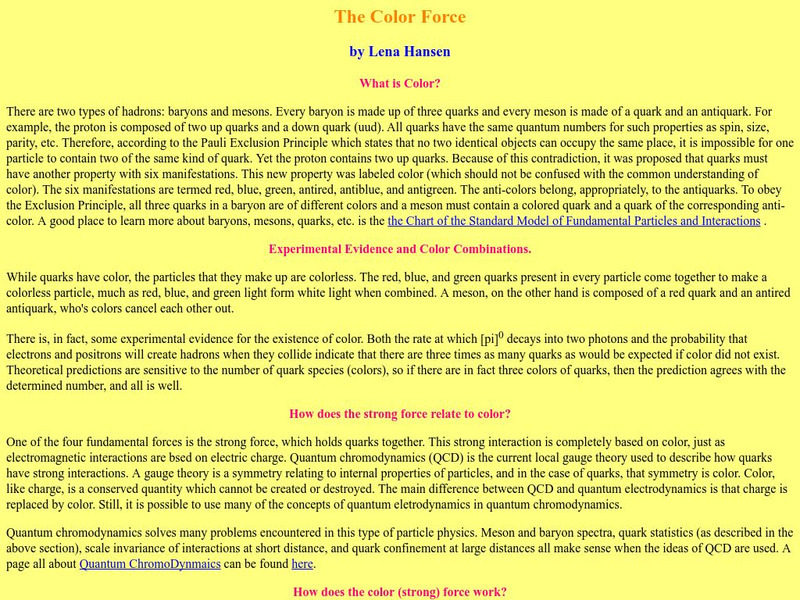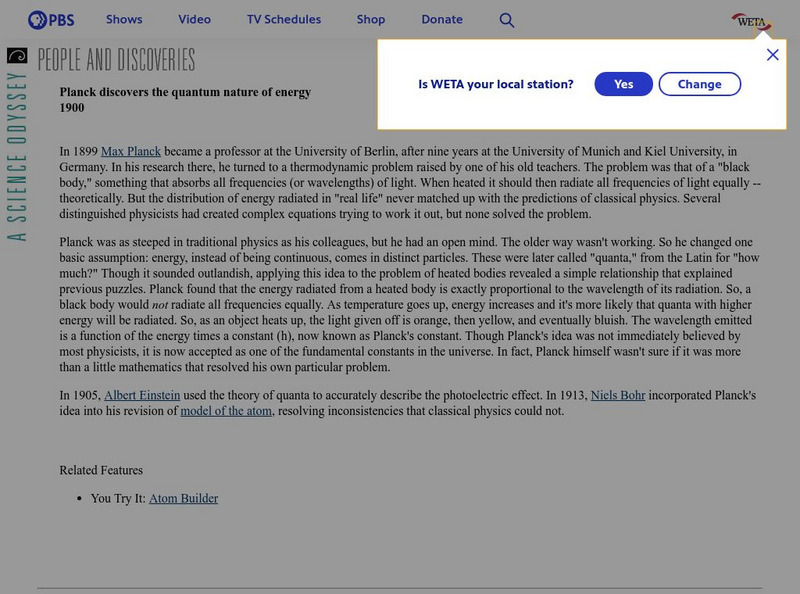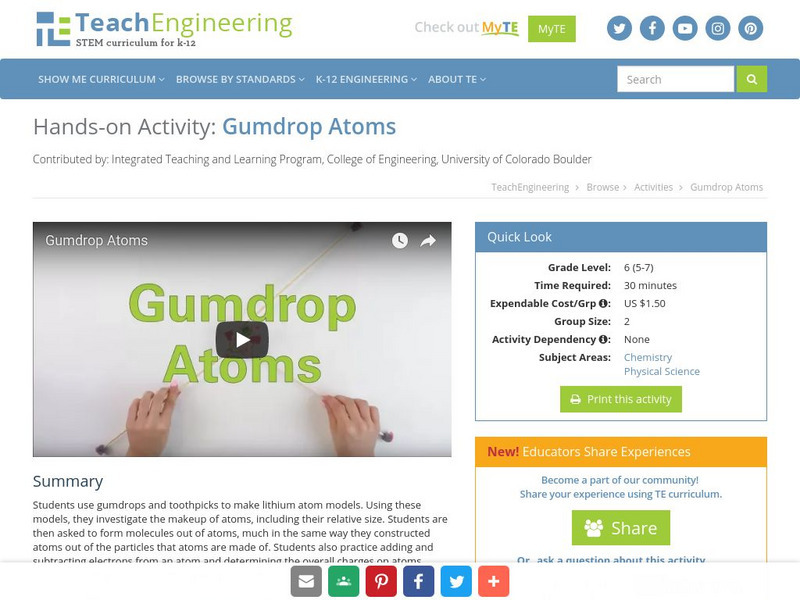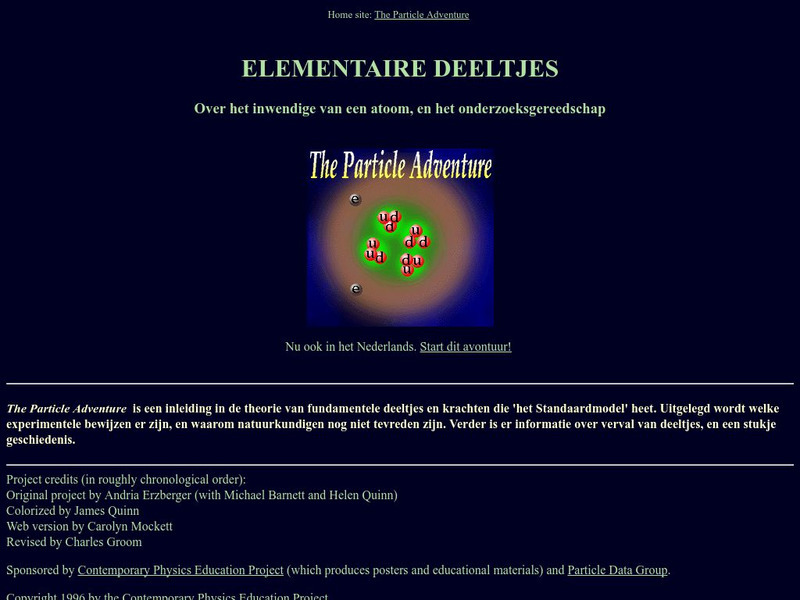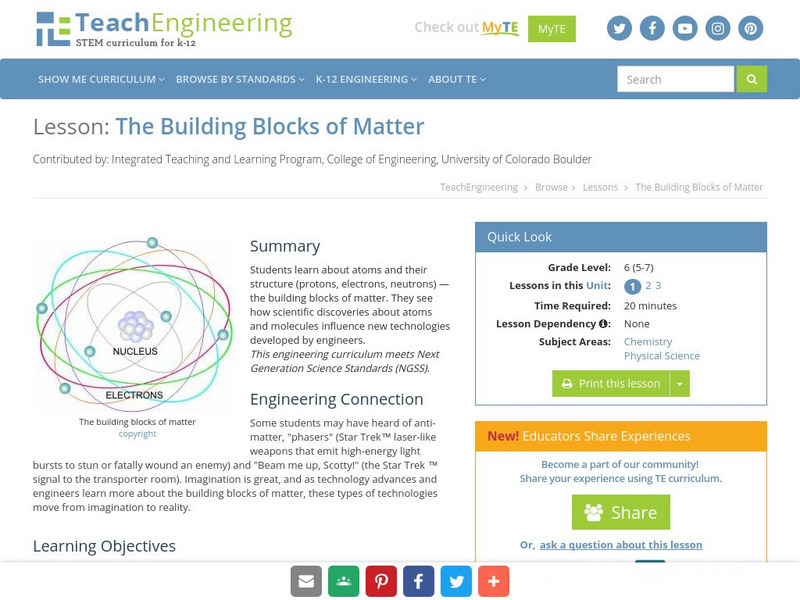Concord Consortium
Concord Consortium: Stem Resources: Atomic Structure
Introduces learners to atomic models of the past and present, focusing on the orbital model and an explanation of its basis. Learners then have the opportunity to "make an atom" and contrast it with an ion, followed by an isotope. The...
CK-12 Foundation
Ck 12: Atoms
[Free Registration/Login may be required to access all resource tools.] Students learn about atoms and atomic structure in this collection of instructional videos, grade-level texts, and quick assessments.
CK-12 Foundation
Ck 12: Atomic Theory
[Free Registration/Login may be required to access all resource tools.] In this online tutorial students will explain the law of conservation of mass, the law of definite proportions, and the law of multiple proportions. They will also...
Chem Tutor
Chem tutor.com: Atomic Structure
This page provides a thorough and comprehensible discussion of the structure of the atom. Includes helpful diagrams and instructions for filling electron shells, reading the Periodic Table, and drawing Lewis Structures.
PBS
Pbs Learning Media: The Atom
In this interactive activity from ChemThink, students will take a closer look at atomic structure, properties, and behaviors. Includes background reading material and discussion questions.
Chiral Publishing
Chiral Publishing: An Introduction to Chemistry: The Structure of the Elements [Audio Book]
The structure of the atom is uncovered in this interactive tutorial. Discover the different particles of the atom and learn their charges and how they can affect the overall atom.
Texas Instruments
Texas Instruments: Atomic Structure
This StudyCards stack enables students to review the terms associated with learning and using the Periodic Table of the Elements.
Texas Instruments
Texas Instruments: Atomic Nuclear
This StudyCards stack enables students to review the vocabulary associated with atoms and nuclear chemistry.
Texas Instruments
Texas Instruments: The History Behind the Atom
This StudyCard activity enables students to review the key contributions by scientists and philosophers towards are current understanding of the atom. It also allows students to review characteristics of the major atomic models.
Science Education Resource Center at Carleton College
Serc: Electron Energy Levels of Atoms and Ions
In this lab, young scholars investigate basic electron structure by making a model using pennies and different sized filter papers.
Science Education Resource Center at Carleton College
Serc: Drawing Atoms
This activity serves as an introduction to chemistry, and can be used to help students draw a two dimensional image of the atom.
Science Education Resource Center at Carleton College
Serc: Properties of Electrostatic Charge: Interactive Lecture Demonstration
Students will investigate the properties of charge, charge by contact, the polarization of charge, and charge by induction. Through the use of demonstrations, students should have a thorough understanding of the movements of electrons...
TED Talks
Ted: Ted Ed: The Invisible Motion of Still Objects
Ran Tivony describes how and why molecular movement occurs and investigates if it might ever stop. [4:44]
University of Colorado
University of Colorado: Ph Et Interactive Simulations: Rutherford Scattering
How did Rutherford figure out the structure of the atom without being able to see it? Simulate the famous experiment in which he disproved the Plum Pudding model of the atom by observing alpha particles bouncing off atoms and determining...
Open Curriculum
Open Curriculum: The Atom
Learn about atoms and their properties of motion with this illustrated article.
Duke University
Duke University: The Color Force
What does color have to do with particle physics? This page explains the concepts of color and the color force, which are fundamental subjects in quantum chromodynamics.
PBS
Nova: The Atom Builder
A brief explanation is provided for designing a stable atom. You can also refer to a labeled model of a carbon atom. This resource also has a link to an atom building activity.
PBS
Pbs: Planck Discovers the Quantum Nature of Energy
PBS offers a short summary of the discovery of the quantum nature of the atom by Max Planck. Easy to follow.
TeachEngineering
Teach Engineering: Gumdrop Atoms
In this activity, students make a model of a lithium atom using gumdrops and toothpicks. Using this model, they investigate the makeup of an atom, including its relative size. Students also practice adding and subtracting electrons from...
Other
Swiss Federal Institute of Technology: Pauli's Principle
Provides information concerning Wolfgang Pauli's Exclusion Principle. Contains the periodical table of elements.
Sophia Learning
Sophia: Valence Electrons and Core Electrons
Through a series of slide show presentations and a video lesson, strengthen your understanding of valence electrons. [2:46]
Soft Schools
Soft Schools: Atomic Structure Quiz
Take an interactive quiz over the atomic structure and number of elements. After completing the quiz, check your score, and then revisit any incorrect question for further review
Other
Particle Adventure Dutch Version
Dutch version of the well-known "Particle Adventure" physics website that teaches students about atoms, mass, particle physics, and quantum physics. The site discusses theories related to physics and provides other links related to the...
TeachEngineering
Teach Engineering: The Fundamental Building Blocks of Matter
This lesson plan explores the fundamentals of atoms and their structure. The building blocks of matter (protons, electrons, neutrons) are covered in detail. Students think about how atoms and molecules can influence new technologies...







